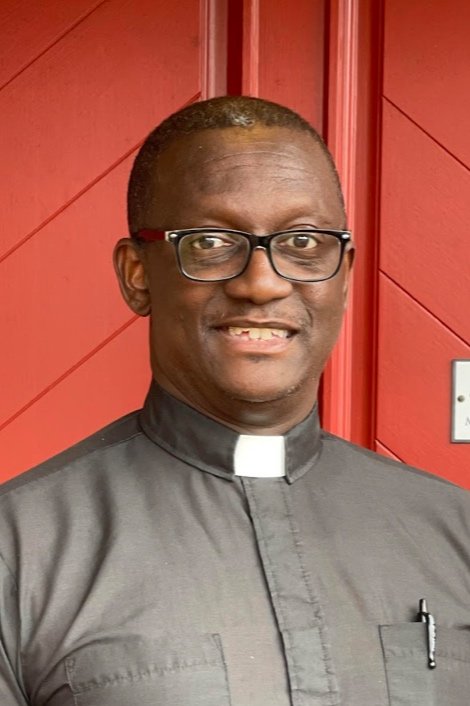A Meditation for Monday after the Second Sunday in Lent
By The Rev. Christian Senyoni
I recently watched a documentary about the lives that Mount Everest has claimed. What I found fascinating was the sheer determination of individuals to reach the summit, despite the obvious dangers. God created us with a sense of creativity and a sense of enjoyment over the fruits of our creativity. I learned that every person that perished on Mount Everest had a particular story, a precise timeline of the journey that led them to their demise. They all shared a sense of appreciation for personal achievement, a sense of conquering the difficult. They knew that the dangers of the journey were very real and they trusted they could overcome them, until they realized they may not make it. In the same way for a Christian, there are real obstacles, but the way forward is to keep our eyes on the goal.
We see similar scenarios in the world of Bible stories: The Jewish leaders considered Jesus to be a dangerous innovator and consequently wanted him out. He was battling forces of the Kingdom of darkness in the form of jealousy, diseases, demons, and other manifestations of this realm. Those who are Christ’s followers, who have taken to heart Jesus’ profound message: “If anyone would come after me, let him deny himself and take up his cross and follow me,” understood that the mission of Christ is to be “image bearers.” We are also on such a journey, battling forces of darkness with the help of Christ Jesus, our Lord and Savior.
The real crux for us is not to see and fight these forces of darkness only out there in others but also to see and fight them within ourselves. We have to fight against the desires of the flesh, crucifying them, so we can live a life that is honoring to God (Gal 5). During our Lenten journey, beginning on Ash Wednesday, we are encouraged to remember that we are dust and to dust we shall return. We are called to understand that our journey will be difficult. Jesus’ journey to the cross for our redemption was also difficult and full of pain and suffering. Therefore, our own journey will undoubtedly resemble Christ’s journey (Mark 16:17-18).
What Christians may share with Mount Everest climbers is the faith to conquer obstacles, the difficult and narrow path traveled by few. Both require training and perseverance but the inner drive for a Christian is the equipping of the Holy Spirit through God’s word, not by our own strength. Christians don’t prioritize self-serving goals. We value community and follow Christ for his glory, not ours. We look beyond our desires for personal benefits to ourselves or our family. When we connect with Christ and his values, we are drawn into Christ’s community and his care for others. Just as climbers must train hard for the journey ahead, Christians must also train hard to be Christlike. It is an ongoing process.
Christians have an inner compass that drives their goals in a God-given direction. This direction (or path) that glorifies God presents all kinds of obstacles for those who are committed to it. There will be opposition just as Christ faced. We are called to swim against a tide full of manifestation of “systems” opposed to God and His truth. According to an article by Thomas Kutty, Tertullian, the early church North African Christian apologetic, was not surprised by organized opposition to Christianity. He saw no possible compromise between Christianity and secular culture. We must be willing to listen to the voice of God through Holy Scripture and to be guided by God. His character, purpose, and promise do not change.
Ask yourself: What will it mean for me to deny myself, take up my cross and follow Christ? What are the obstacles ahead, preventing me from living fully as an “image bearer”? What am I battling these days? Invite Jesus Christ into your day-to-day moments, so he can carry you through the highs and lows of life. Take an inventory of what’s going for you and be thankful. Also, write what’s going against you in your journey to grow innChristlikeness and let go of it; give it up to Jesus. Perhaps, in the process, we might learn reasons that some of us stagnate spiritually–maybe we’ve had experiences through which we’ve refused to grow or learn.
May the Lord guide you and give you a new heart and a new spirit to serve him unreservedly! (Ez. 36:26)
The Rev. Christian Senyoni grew up in Rwanda, East Africa. After the tragic events of 1994 which led to the genocide, his family fled to neighboring countries and he returned to native Rwanda a decade later. Fr. Christian has three children, Jean Pierre, Kevine and Jessie. His four siblings and mother traveled southward in search of safety and lasting stability. After about a hundred days, every family had lost relatives in the killings, and the trauma took a toll on many individuals and families. Only by God’s grace and healing power, Fr.Christian was able to find a way to daily divine healing available in Jesus Christ and share it with the world. He says, “God brought us to safety numerous times, often in dramatic rescue. God used numerous people on our journey, helping in ways that could only be explained as miraculous.” Fr. Christian graduated from Wheaton Graduate School in Intercultural Studies and was ordained in the Episcopal Church in July 2013, after completing his seminary training at Nashotah House. He now serves as an Associate Priest at St Andrew’s Episcopal Church in Collierville, Tennessee. Although he has seen the human condition at its worst, he has experienced God’s faithfulness throughout his journey and aspires to bring faith, hope, and love in Jesus Christ to all people. The readings for the preceding devotional may be located here from Forward Movement.

